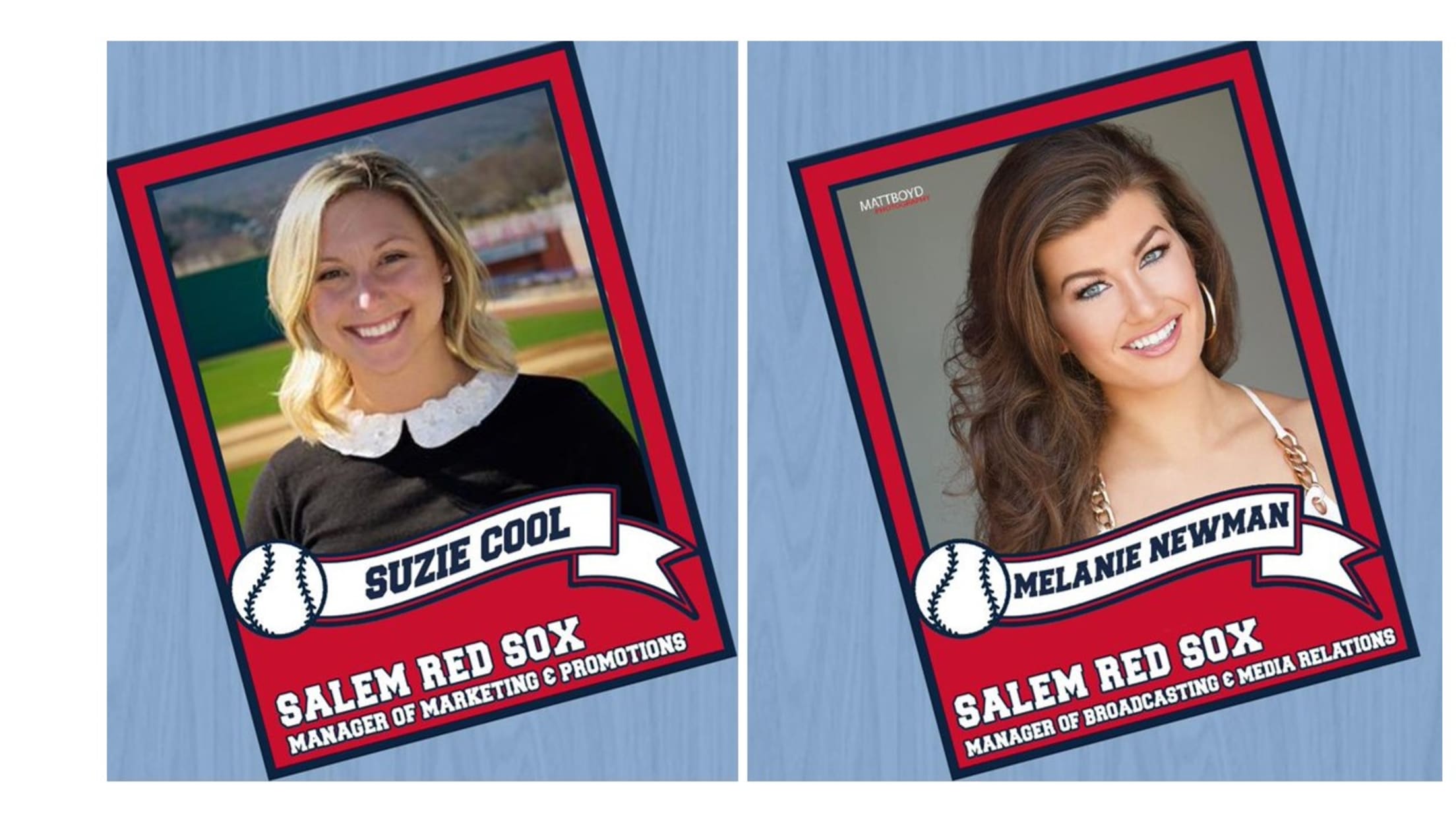Meet Veronica Alvarez, the only woman to coach at Spring Training this year
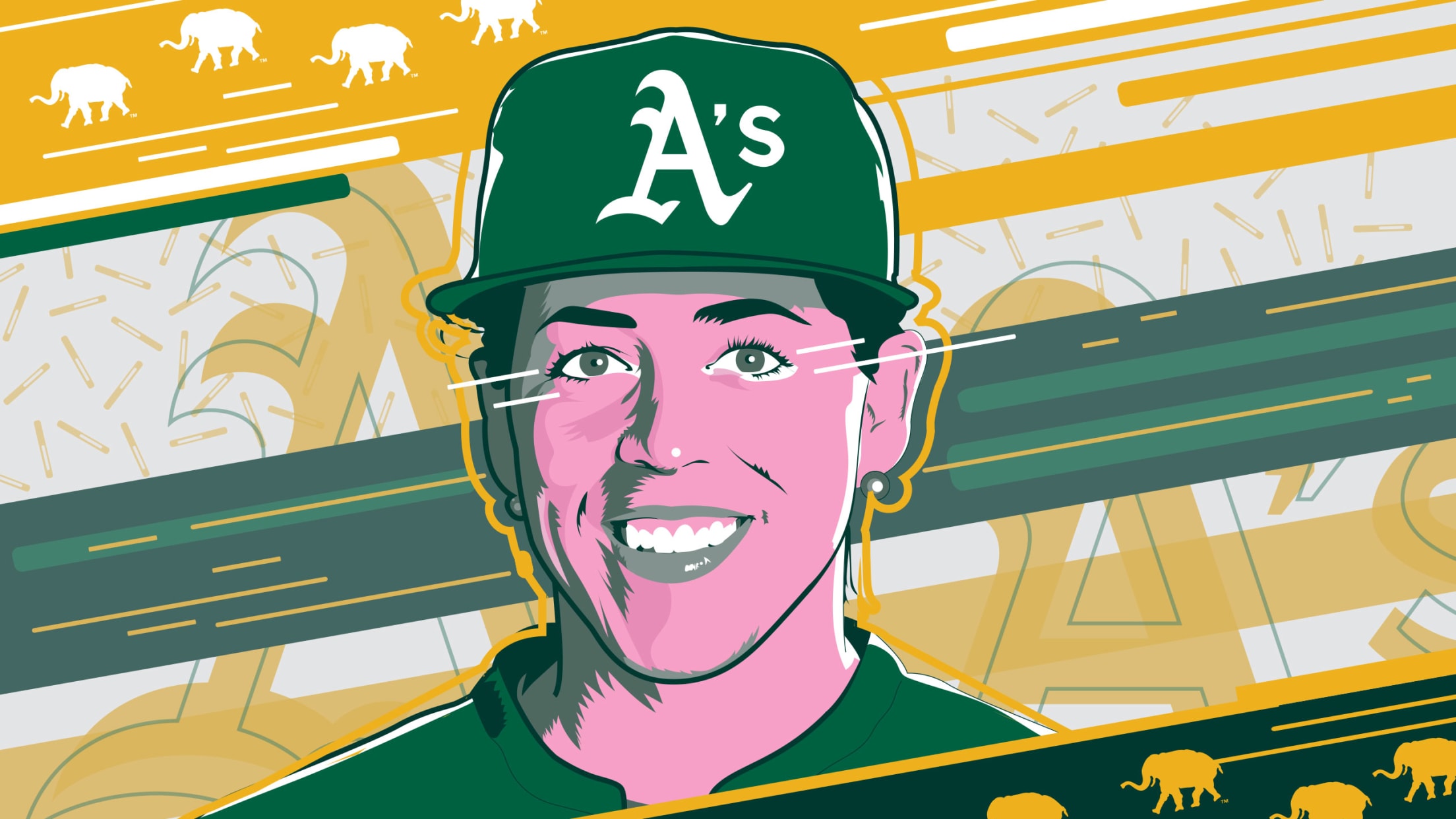
Veronica Alvarez, a former USA Baseball Women’s National Team catcher, can usually be found coaching at girls’ baseball events and working as a firefighter and paramedic in Florida. But this year, the Pan American Games gold medalist became one of the few women to coach for a Major League franchise. (Justine Siegal, founder of Baseball for All, was a guest instructor for the A’s instructional league in 2015 and threw batting practice for Cleveland at Spring Training in 2009.)
In March, Alvarez joined the A’s Spring Training coaching staff. Just after camp ended, we spoke about her experience with Major Leaguers, her favorite events to coach and her feelings on robot umpires. Portions of this conversation have been edited for length and clarity.
So how was A’s camp?
A's camp was phenomenal. It's hard to put words to describing it. I had a great time. I mean obviously to me being around baseball all day every day is like heaven. It really is the quote from “Field of Dreams.” It really rings true to me -- when [the players] walk in, they say, “Is this heaven?” and then somebody says, “No, this is Iowa.” That's what I kept thinking there.
You’ve been playing baseball basically your whole life, or baseball and softball. But when was the moment when you thought, “This is for me.”
For some reason I came out wanting to play baseball, so I started when I was five. My brother kind of started at the same time -- he enjoyed Little League and I was the bat girl. From there, I just started playing. You know, I guess the go-to move for girls is gymnastics or ballet class. My parents would tell the story of how they took me to a local shopping center to go to a ballet class and when I saw what we were about to do, I started sprinting away down the walkway screaming "Nooooo!" And that's when they knew I wasn't going to do ballet.
I just really wanted to play baseball. Lucky for me I have phenomenal parents. I'll say it in every conversation I have -- I'm lucky to have them. It's not typical. I'm a first-generation American. My parents were born in Cuba. For a Hispanic girl to be able to do whatever she wants -- that's not a norm, unfortunately. I'm very thankful to my parents for that, and for never limiting what I could accomplish.
I switched over to softball at about 10 years old. Everyone's typical story is that baseball kicks them out of the game, and then softball is kind of the only other option. For me it was more along the lines of “softball brought me in.” That's because softball had just taken off in Miami, so they just were trying to get as many athletes as possible to keep it going.
My first love is baseball. When I was a kid, 10 or 11 years old, I wanted to be a Silver Bullet. [The Silver Bullets were an all-female professional baseball team from Colorado. They played from 1994-97.] When I was 20 -- I don't know how old I was at that point -- 25, 26 -- I was like, “Let's see if [the Silver Bullets] still exist, so Googling them led me to the USA Baseball Women's National Team. That’s how I got in touch with them. I got an email in 2008 to go try out for the World Cup team and I went to Kenosha, Wis., for my first ever women's baseball event. So I tried out, made the team and played USA Baseball from 2008 to 2015.
I was a catcher. I played in, I believe, a total of three World Cups and one Pan American Games, which was in 2015. [That] was our first time ever being involved in the [Pan American Games], and as of now the only time we won. It was one of my favorite experiences.
I think for men who play the game the pathway to coaching is a bit different because they've just been in some sort of system for so long, whether they’ve played for a long time or not. It’s like, “OK, I'm going to coach at this level and now move up to the next level,” but I imagine for you it was a little bit different. How did you get into coaching?
If you sit down and talk to the Women's National Team, veterans or players, we'll talk for hours and hours. There are so many different things that we want to accomplish and solve, and create more opportunities. We all hope that one day we can have a full female staff, whether that happens or not, or whether it's a crazy dream. I don't think [it is]. I don't think any dream is crazy -- but that's what we hope to accomplish one day.
I’m a firefighter/paramedic so that allows me the freedom to rearrange work around my life. With USA Baseball, I've worked a couple of events for the women's side.
This [was] the third year for the Trailblazer Series put on by MLB and USA Baseball. MLB has been funding the girls that are on the women's side of the game, which we really love and appreciate.
That began with the Trailblazer Series. Last year they added the Breakthrough Series, and then this year they added the GRIT series. So now we have three events. I coached at all those events and last year I was part of the Women's National Team staff. I just showed interest by being involved, by just reaching out to USA Baseball and letting them know that I wanted to be on the coaching side of it. I guess through my work and the communication that I've landed in these positions.
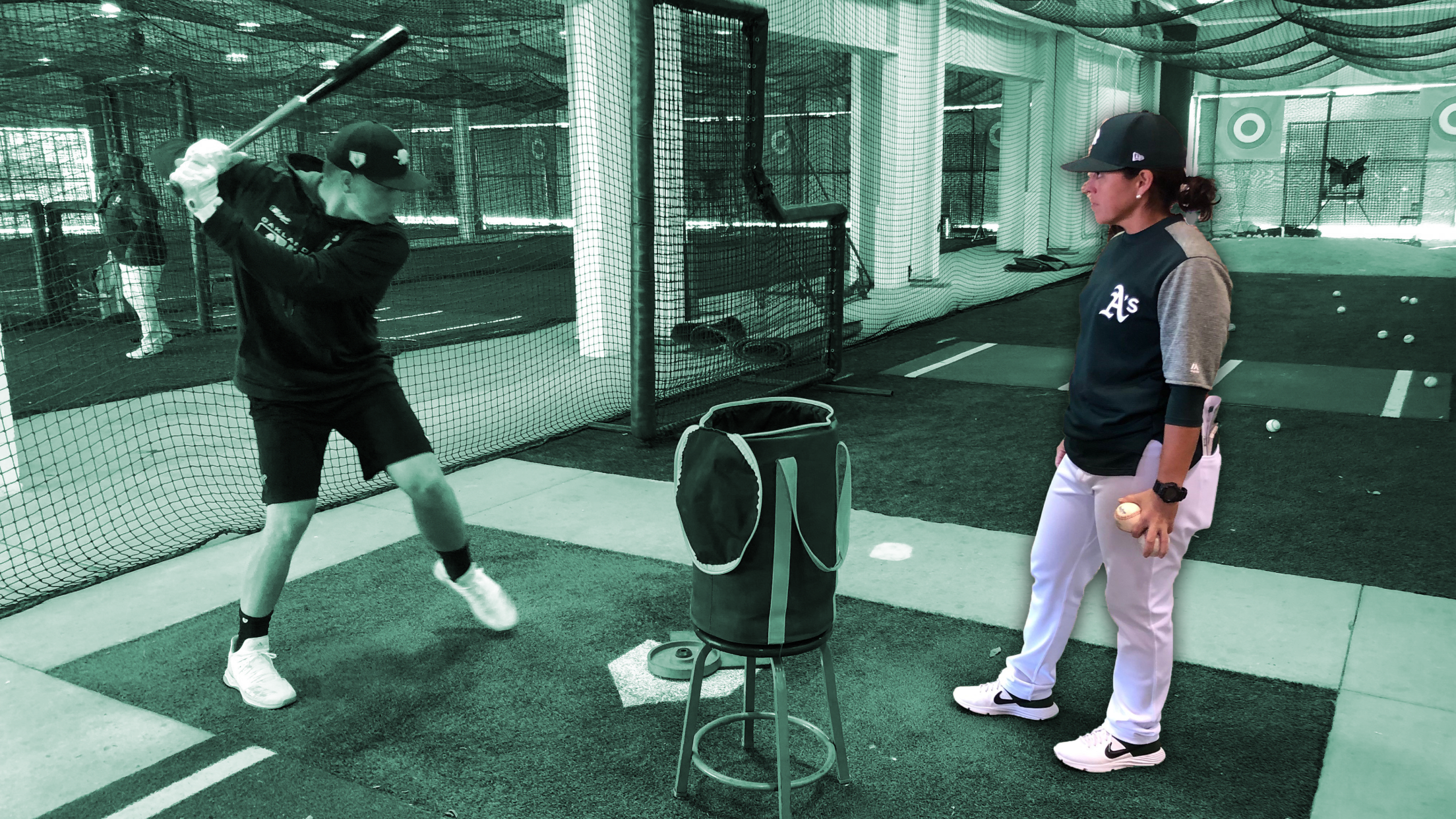
So, you said you have this other job – you’re a firefighter and paramedic. That seems like it's a very intense job! How many people in the sports scene do you know that are juggling things like this?
On the women's side, we've always had to juggle things. As a player, I feel like I juggled. I was not a firefighter at the time -- I had an administrative position in the school system, but I juggled that and training on my own, because that's what you do on the Women's National Team. You train on your own for the most part, and you should be ready by the time we come together, pretty much ready to play in a World Cup.
Take our team captains. Malaika Underwood juggles a phenomenal career, and now she's a mom, so on top of that she's doing three things. We also have Tamara Holmes, who is another veteran player on the USA Baseball team. She's a firefighter -- she's actually a lieutenant out in the Oakland fire department. I think we've just been accustomed to juggling things. I don't know, it's just part of the territory. I guess it’s just what we’ve got to do.
So, you were a catcher. Did you come out specifically to work with catchers?
I came out to be around the whole game, but I spent most of my time working with Gabriel Ortiz, the [A’s] catching coach (also known as El Gato). I spent time with the catchers pretty much every day, but the way that the schedule falls, they might have 20-40 minutes of work. So, I could work with them and still do other things as well. I would throw batting practice pretty much every day, and be around different coaches doing baserunning or infielding, and just kind of mixing in as much as possible.
But they put me there because I absolutely love catching. I love coaching catching -- like, that's my favorite thing to be around. It’s a position that gives you a full view of everything that's going on, so it makes you be sharp in all aspects of the game.
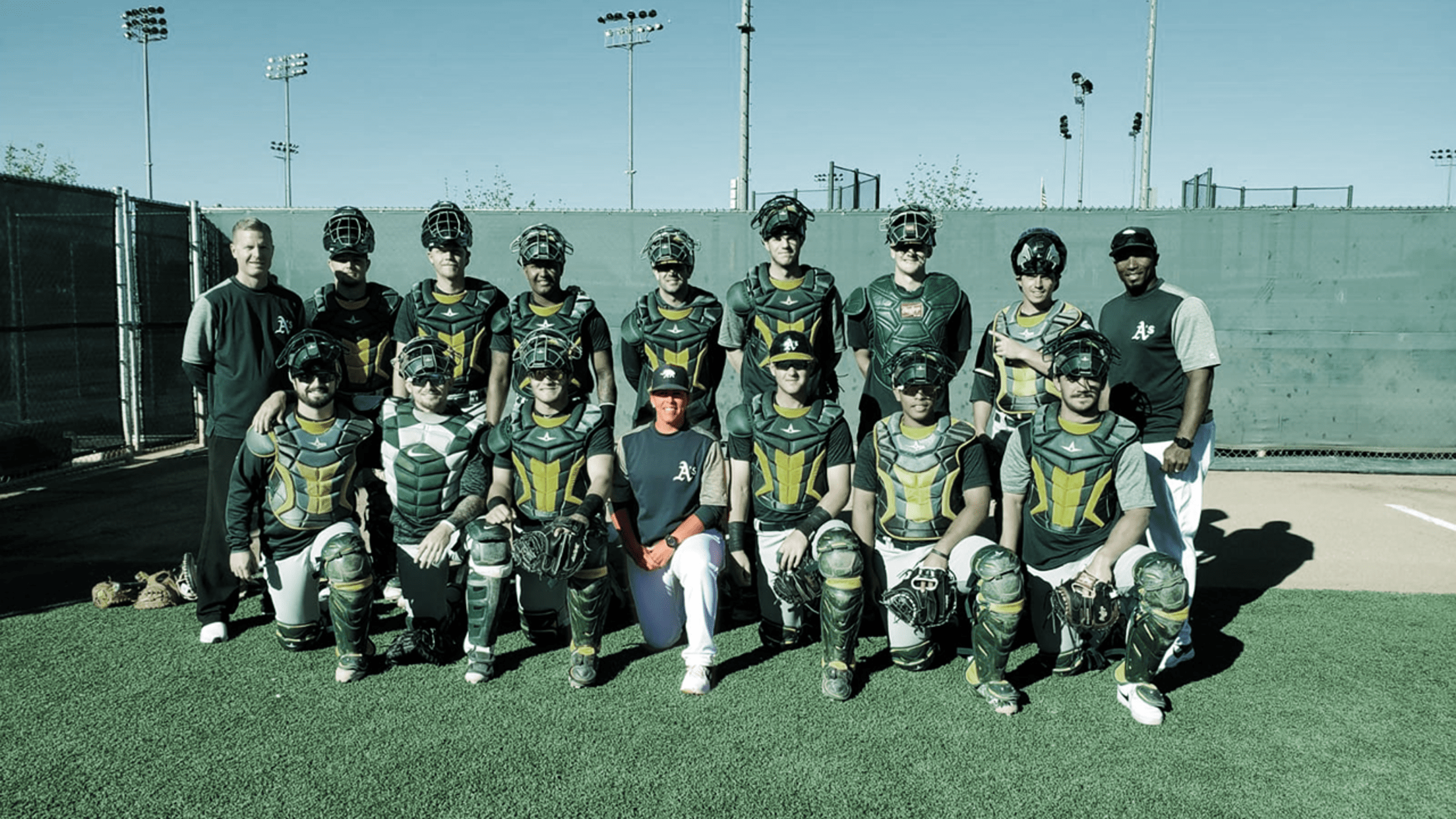
What’s something that a typical fan might not know about Spring Training from a coach’s point of view?
I don't know if this is across the board in every organization, but something I really loved and valued with the Oakland A's was that we were getting there at 6:45-7 a.m. and just starting meetings in preparation. It wasn't only a learning environment out in the field. It was a learning environment inside the coaches' staff room, too.
The meetings were informative at first -- you know, who was injured and who was not injured, who needs limited playing time. Once we started games, it was game reviews. But after all that information was shared it became a learning environment -- like communication and conflict resolution, how to deal with players these days. Every day was something new, which was amazing to me. We were developing ourselves almost as a personal reflection. I think it was really important for my development and for the development of every coach, which is maybe sometimes looked over.
So, I don't see women coaching at big league camp. Justine Siegel did coach a little bit with the A's, but not at Spring Training. I wonder, how did that play in those meetings? Is it something that you talked about, or is it something that you thought about?
OK, I'm sure you work in male-dominated environment. You don't really think about being a woman every day you walk into work. I mean it is obvious! It's obvious to you, right? It goes without saying you're a woman. And we think about that all the time.
I mean, they tell you you're brave, you know, walking into a room of 80 men or whatever, or 200 players. But for me I'm comfortable in a male-dominated environment, being a firefighter. So, I just want to want to fit in -- no, mix in, not fit in. As long as I’m confident in what I'm there for, and I'm just myself, I know it’s going to be OK.
Obviously, I understand the role I'm playing. I'm trying to make a good impression. I'm trying to open the minds of men, I'm trying to show girls and women that you can accomplish everything. Those are my “whys,” you know, what you talk about when someone asks why you do something. Why? For every little girl that has a dream to be involved in the game, to let them know that it's a possibility, that you just have to set your mind to it and work hard. And you know even women that never thought that this was a possibility but always wanted it, same thing.
Hopefully with what I've known, my experiences in my life and the amount of baseball education I have, I've been able to accomplish some of those things.
I don't know that if that's put the right way. I try not to think about the fact that I was an outsider, because if you're always thinking that you're an outsider you're never going to be an insider.
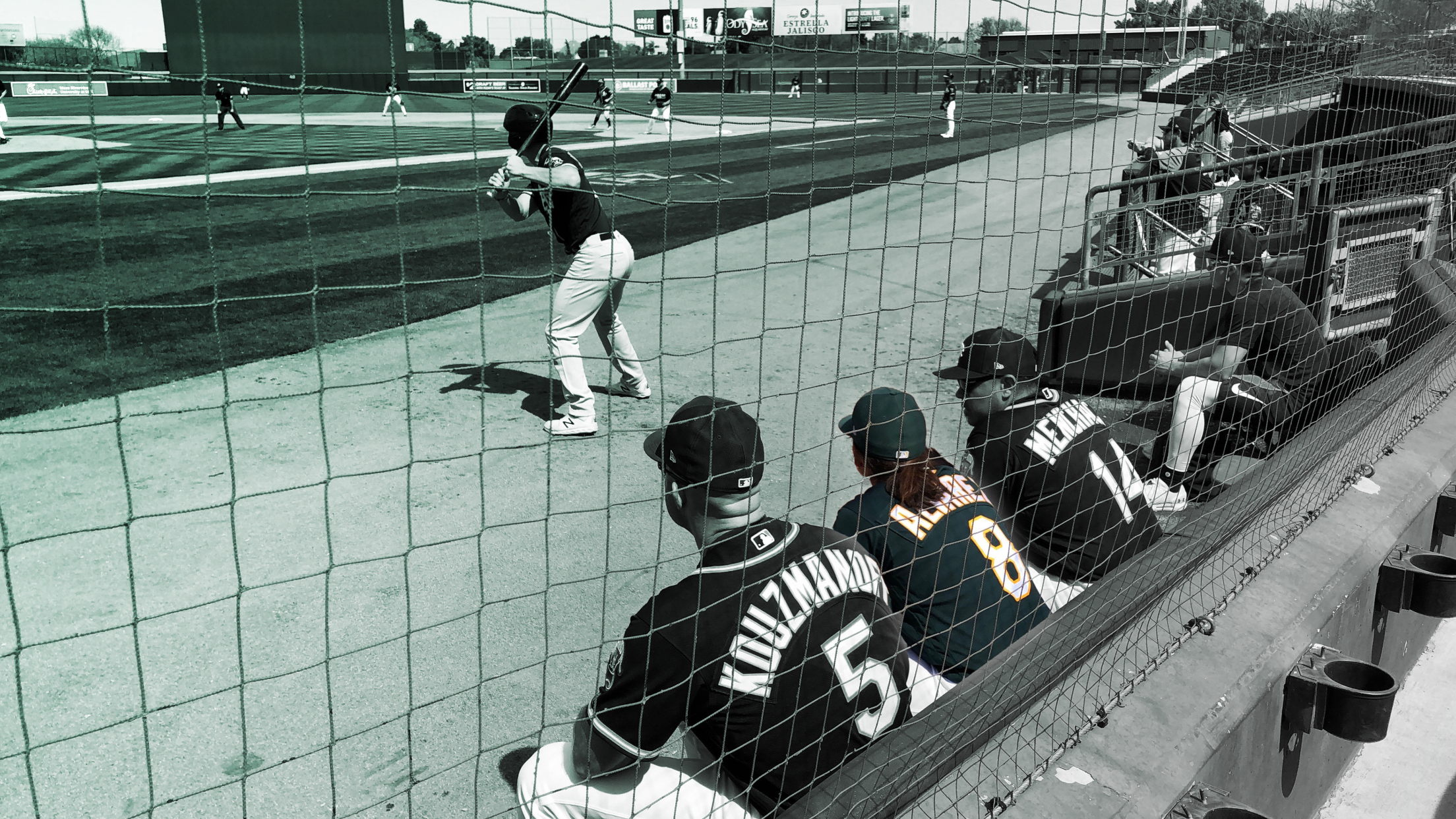
That's very well put. It’s a lot to carry as a burden when really it's just that you played baseball at a high level and you are a coach, and that's what you came there to do. So, what's the next coaching gig on the horizon?
I’ll be at the Trailblazer Series, the MLB event for girls, in April. It’s one of my favorite events. I love them all, but I absolutely love this one. I don't know how familiar you are with it. But, not only are there 99-100 girls at the camp, all the coaches are women, either former USA players or current players.
For the most part, all these girls were the only girls playing baseball on their teams. They don't know that other girls play baseball. It’s crazy to me how in this age of information, so many people don't know that the Women's National Team exists. So, these girls come into camp not realizing that, and then you see them see the other girls and have an instant connection. Once they get on the field, they're no longer worried that they're the only girl out there; the only thing they're concerned about is playing baseball. It’s such a freeing thing for them. These little girls are in heaven just being around others like them that play the sport. They're no longer an outsider. They fit in with everyone. So that part of that event is one of my favorites.
And having women coaches shows them it's a full-circle thing. They think, “These women exist, they play the sport and they've accomplished all these great things. Maybe I could do the same.” I think it's such a valuable thing, even for the parents to see. On an everyday basis they're fighting and probably having the discussion with everyone, like “When’s your daughter going to move to softball? Girls don't play baseball.” So, they come to this event themselves and they see that women play the game and they're accomplished and they're well-rounded. So, I think it's so cool that everyone's there to kind of promote accomplishing your dreams no matter what.
They always have a panel -- I’ve met a lot of people through these events. I mean, I'm just as excited when I meet the women that played during the war in the All-American Girls Professional Baseball League. I love seeing them because it's almost like, “Hey, look, you pushed the boundaries years ago and maybe it didn't seem like much happened but look at what's happening now.” I feel like I just get excited for everyone else.
I really love that. I’m excited for you too, and I do believe that you will have one day an all-woman coaching staff.
Nothing against our guys! I was telling some of the A's guys, “I'm going to call you and you can come work with the Women's National Team.” All of them end up loving it so much when they come to our tryouts. They'll tell you themselves. They'll come in all skeptical. They're kind of just like “OK, sure, we'll do it.” Then, by the end of it, we've had multiple men crying at the end of our trials or our training, thinking about the experience and how amazing it was -- how it revived their love for the game. They come in skeptical and they all leave absolutely in love with women's baseball.
I love that. I hope to see it gain even more widespread popularity over the next decade or so.
The women's game is like old baseball -- you know, using the situation and moving runners. It’s not like we don’t have girls that can hit home runs, but that's not the game. It’s more of the game within the game, which is probably my favorite part of baseball.
So wait, as a catcher, how do you feel about the robot ump possibility?
I hate it.
Why do you hate it? I kind of hate it too. But why do you hate it?
I absolutely hate it because I think that it takes away the catcher. Anybody could just be sitting back there and catching balls. It’s an art to receive the ball. It’s is a skill that you work on. We were just working on it for days and days and days with guys that have played this game for so long. And we're still trying to refine it. The big-league guys work on it every day to keep their skills sharp. It’s a skill to receive the ball, to be able to get maybe a couple inches off the corner. It's the way you help your pitcher out. A robotic umpire takes that away. Not anyone can catch a ball.
It's true. OK. So my last question for you before I let you go is: If you could give all catchers in the world just one general tip, what would it be?
Well … I think it would be to embrace the fact that being a catcher is to be selfless. Like, we improve ourselves. We sharpen our skills, we get better, but it's really for the good of everyone else. You know we're not going to get the praise that maybe we deserve. You're not going to get the pat on the butt that you deserve. The pitcher might get your praise. Somebody else might get your praise, but you need to know and accept it. And own it! It’s all because you worked hard. You got better, and you made [your teammates] better. I think that's a beautiful thing -- being an ultimate teammate.

